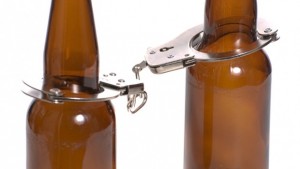This question is one of the most commonly asked questions for people who are arrested for Driving While Intoxicated (DWI) or Driving While Impaired by Drug (DUI). Once you are arrested for DWI and taken into custody, the police will read your refusal warnings and tell you the adverse consequences of refusing to take the breathalyzer or chemical test to confirm your Blood Alcohol Content (BAC).
(DWI) or Driving While Impaired by Drug (DUI). Once you are arrested for DWI and taken into custody, the police will read your refusal warnings and tell you the adverse consequences of refusing to take the breathalyzer or chemical test to confirm your Blood Alcohol Content (BAC).
The consequences for a refusal are quite strict under New York law. If you refuse to blow, your New York driver’s license will be revoked for a one year (subject to a refusal hearing at the Department of Motor Vehicles). Please note that the refusal hearings are administrative hearings and very difficult to be successful with. All the officer has to establish by clear and convincing evidence is that the officer had reasonable suspicion to stop the vehicle that the consequences of refusal were read, that the motorist understood the consequences and still refused to take the test. A refusal causes a hard-line stand for most District Attorney offices, especially in Nassau and Suffolk County. Most DAs will be unlikely to negotiate a plea to a reduced and amended charge based on refusals as a matter of public policy.
If you believe your BAC was close to the legal limit and there were no further aggravating circumstances, you may want to consider taking the breathalyzer test because it may enhance your chances of getting a reduced offer with the DA. However, if you do not provide a breath sample, the evidence to be used against you will be limited to the testimony of the officers based on their observations and field sobriety tests. There will not be the benefit of scientific evidence to bolster their case. Your performance on the field sobriety tests will weigh heavily on the decision to blow or not. Clear signs of visible intoxication will not be impacted by your refusal.
Other factors to consider in your decision are really case-sensitive. If you are extremely intoxicated (.18 or higher is aggravated DWI), if there was a motor vehicle accident that resulted in personal injury or death, or if your job is dependent on your ability to drive (i.e. commercial driver license), you may want to consider a refusal.
Clearly, if you receive a DWI on Long Island, please contact experienced DWI attorneys at the Law Offices of Michael W. Alpert at (631) 225-4603 or contact us via e-mail.